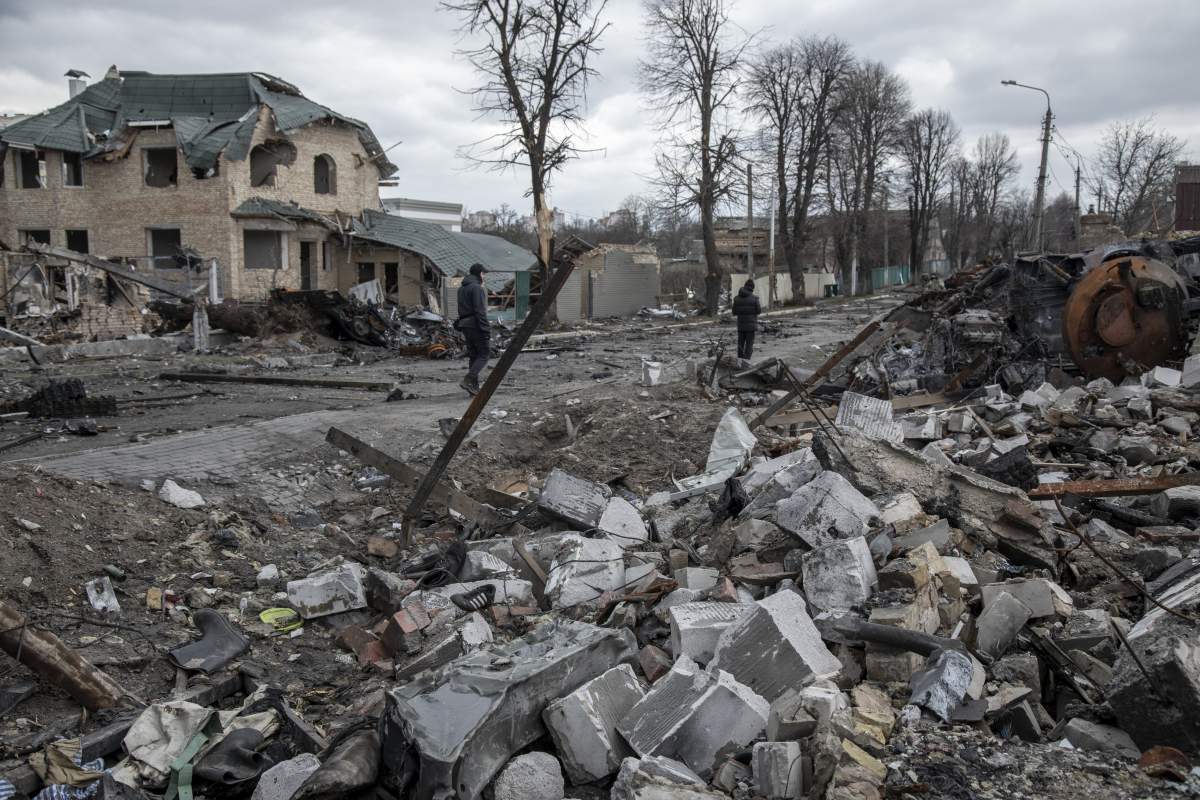The German government has indications that Russia was involved in the killing of civilians in the Ukrainian town of Bucha based on satellite images, a security source said on Thursday.

German news magazine Der Spiegel reported that the intelligence agency had intercepted radio messages from Russian military sources discussing the killing of civilians in Bucha.
“It’s true that the federal government has indications of Russian perpetration in Bucha,” said the source. “However, these findings on Bucha refer to satellite images. The radio transmissions cannot be clearly assigned to Bucha.”
The source did not elaborate. He said there was no indication of an order from the Russian armed forces’ general staff regarding Bucha.
Bucha, roughly 35 kilometres northwest of Kyiv, was occupied by Russian troops for more than a month following their Feb. 24 invasion of Ukraine. Local officials say more than 300 people were killed by Russian forces in Bucha alone, and around 50 of them were executed. Moscow denies the accusations.

Get breaking National news
Spiegel said the German intelligence office had intercepted the radio messages and presented the findings in parliament on Wednesday, without giving a source for the information.
Spiegel also said there were additional sound recordings whose physical origin was harder to pinpoint, which it said suggested similar events had occurred in other Ukrainian cities.
The BND foreign intelligence office declined to comment on the matter. A German government spokesperson also declined to comment on the Spiegel report.
Ukraine has accused Russia of genocide and war crimes. The Kremlin said on Tuesday that western allegations Russian forces executed civilians in Bucha are a “monstrous forgery” meant to discredit the Russian army and justify new western sanctions.

Russia casts the evidence of civilian executions as a cynical ploy by Ukraine and its western backers, who Moscow says are gripped by discriminatory anti-Russian paranoia.
(Reporting by Andreas Rinke, Writing by Miranda Murray, Editing by Nick Macfie)
- China drops visa requirement for Canadian tourists, business visitors
- Epstein files fallout: People who’ve resigned or been fired after DOJ release
- Inuit look to Greenland’s social model as Canada pursues military buildup in Arctic
- Europe looks to boost its security, urges U.S. to ‘repair and revive trust’








Comments
Want to discuss? Please read our Commenting Policy first.